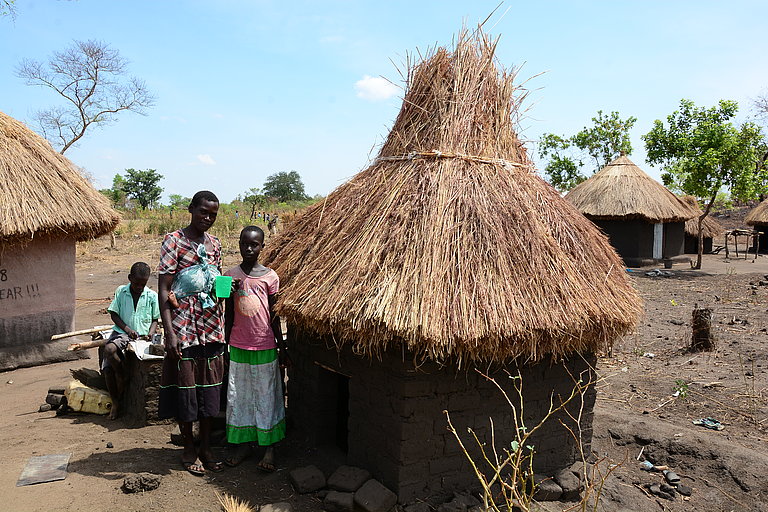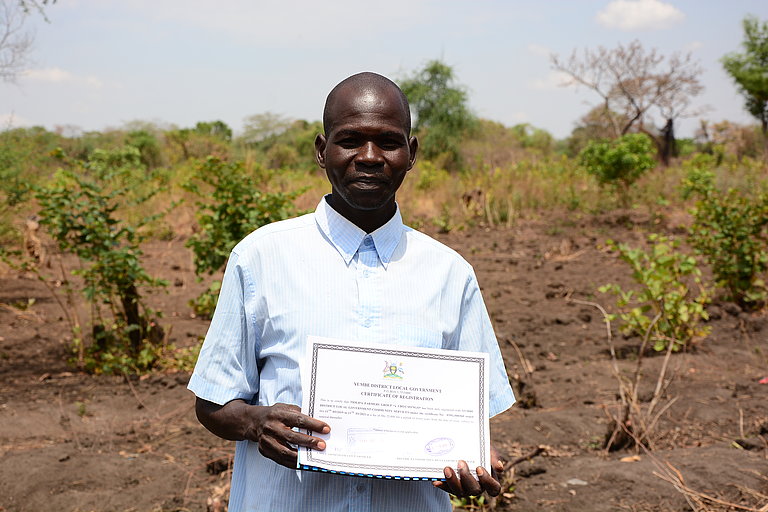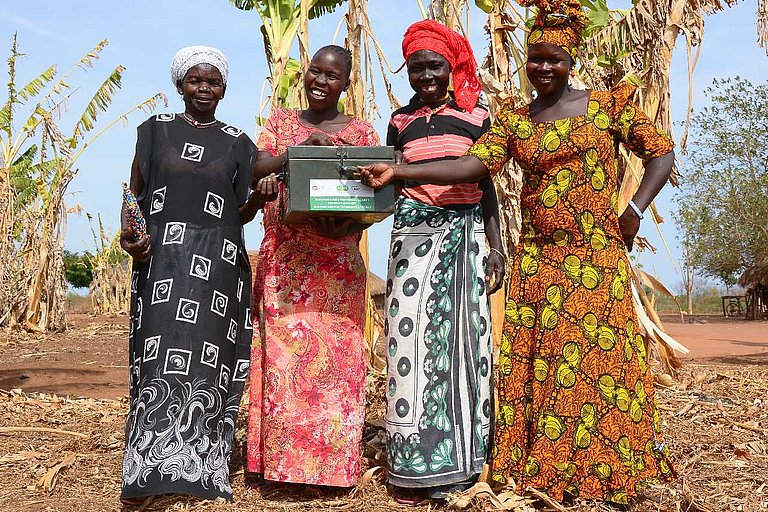Uganda is a hotspot for displaced people and has the highest proportion of refugees in the total population in all of Africa. Our project with our local partner organization AFARD is being implemented in Bidibidi Refugee Camp in northern Uganda, on the border with South Sudan. Bidibidi is known as one of the largest refugee camps in the world, with approximately 225,000 refugees from South Sudan. Together with AFARD, we are reaching out to both refugee communities and the local communities.
Families in the region live mainly from subsistence farming and cultivate their own land. Malnutrition and food insecurity are widespread due to the lack of efficient agricultural technologies . Also, the the traditional crops have a low output. Both refugees and local families often live on the poverty line. Few have alternative sources of income besides their own agricultural activities. In addition, climate change is making their situation increasingly challenging: extreme climatic events such as droughts, heavy rains or floods are becoming more frequent and unpredictable. The situation is further worsening as large areas of forest are being cleared due to the drastic increase in demand for fuel, which is also causing conflicts between refugees and locals.
Strengthen self-organization and create new perspectives

Due to the prevailing patriarchal structures in Uganda, women and girls are often disadvantaged. They attend school more rarely, have more difficult access to the labor market and to food, and have less of a voice in decision-making - this also affects family planning and sexual and reproductive health. As part of our project, we are working with our local partner organization AFARD to help sustainably empower refugee and local families and enable them to improve their lives and become more resilient.
Securing dietary possibilities and increasing income
Knowledge about healthy nutrition, climate-adapted cultivation and appropriate agricultural techniques are shared and learned in farmers' and savings associations. Women, teenage mothers and people with disabilities make up 60 percent of participants. All of the members save collectively and are thus able to obtain affordable loans. They use these to pay for schooling, seeds or health services, for example. The cultivation of vegetables in kitchen gardens and the newly planted fruit trees help the participants to diversify their diet and counteract nutritional deficiencies and malnutrition. At cooking shows, the farmers demonstrate the knowledge they have acquired and the new techniques they have used, reaching a large audience in the process. By using new agricultural technologies, the farmers can also increase their yields. The use of ox wagons makes it possible to cultivate larger areas and generate an additional income by leasing them out. Specially trained members of the farmers' and savers' associations come together in marketing groups and jointly organize the sale and marketing of agricultural products. They look for suitable markets, negotiate prices and create market opportunities. The resulting profit goes back to the farmers and their families as additional income.
Promoting peaceful coexistence and environmental protection

Peaceful coexistence and interaction between refugees and local families is promoted through dialog forums. In these groups, people exchange ideas and jointly develop solutions to conflicts. This encourages fair, conflict-free access to natural resources and protects the ecosystem from further overuse. The project also contributes to climate protection by training and building energy-saving stoves that require less firewood and by using ox wagons for local transport.
Women in particular are also strengthened and promoted in the farmers' groups. The goal is for women to participate more in decision-making and to own assets such as land, money or livestock. In addition, access to information on family planning and sexual and reproductive health is to be improved.
Projectinfo
| Project | Strengthening Resilient Livelihoods Project – Phase 2 |
|---|---|
| Place/Region | Bidibidi Refugee Camp and Romogi and Barakala sub-counties, Yumbe District, West Nile region |
| Partner | Agency for Accelerated Regional Development (AFARD) |
| Target group | Refugees and their host community, a total of 7,719 beneficiaries. |
| Activities |
|
| Duration | January 2023 – December 2025 |
| Budget | 226,000 EUR |
| Sponsor | BMZ SSF |
